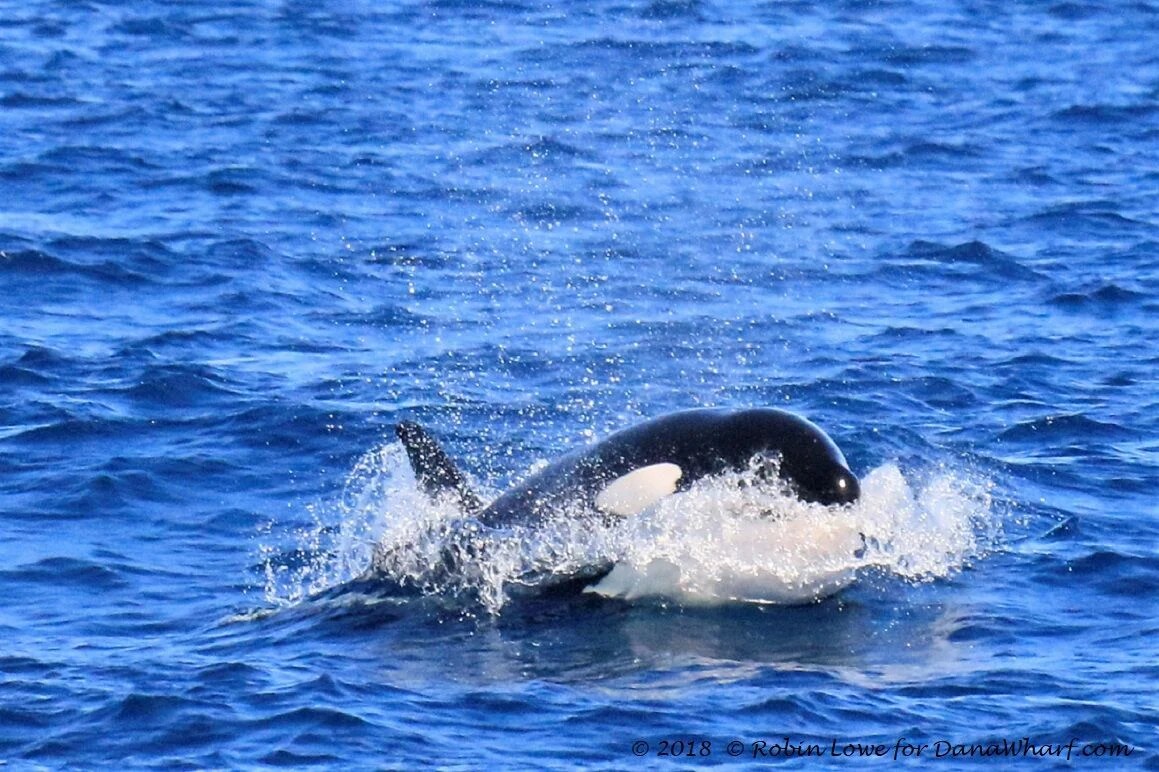Are Killer Whales Friendly? Definitive Answer

When you hear the words “killer whale”, what comes to mind? Is it a majestic, intelligent creature swimming gracefully through the ocean? Or is it a vicious predator, capable of taking down large animals with ease? Maybe you think of their striking black and white coloration or recall a documentary showcasing their remarkable hunting strategies. Whatever your initial thoughts, the image of the killer whale often evokes a mix of awe and fear.
The truth is, killer whales are often misunderstood, and their behavior is frequently misrepresented in media and folklore. In this article, we’ll delve into the question of whether killer whales are friendly, and provide a definitive answer based on scientific research and observations. We will explore their complex social structures, their interactions with humans, and their behaviors in different environments to shed light on the true nature of these fascinating marine mammals.
The Killer Whale
Before we dive into the behavior of killer whales, let’s first understand what they are. Also known as orcas, killer whales are the largest species of the dolphin family. They can be found in all of the world’s oceans, from the frigid waters of the Arctic to the ice-covered seas of the Antarctic. Their global distribution is a testament to their adaptability and the success of their species
Killer whales are apex predators, meaning they are at the top of the food chain. They have a varied diet, with different populations specializing in different prey such as fish, seals, and even other whales. Their hunting strategies are as diverse as their diet, with some pods coordinating complex attacks while others use stealth and surprise to capture their prey. They are highly social animals, living in groups called pods, and have complex communication and hunting strategies. Their societal structures are intricate, with matrilineal hierarchies and lifelong family bonds.
The Misconception of Killer Whales as “Killer”
The name “killer whale” may have contributed to the misconception that these animals are naturally aggressive and dangerous. However, the term “killer” was actually a mistranslation of the Spanish word “asesina”, which means “murderer”. The Spanish sailors who first encountered these animals called them “whale killers” because they saw them attacking large whales. It was an observation of their hunting prowess rather than a comment on their temperament.
In reality, killer whales are not aggressive towards humans. There have been very few documented cases of killer whales attacking humans in the wild, and these were most likely a result of the animal feeling threatened or mistaking a human for prey. It’s important to note that in the vast majority of encounters, killer whales have shown no aggression towards people. Instead, their interactions often reflect curiosity and sometimes even seem to be playful.
The Friendliness of Killer Whales
So, are killer whales friendly? The answer is not a simple yes or no. As with any animal, their behavior can vary greatly based on their environment and experiences. However, there is evidence to suggest that killer whales can exhibit friendly behavior towards humans and other animals, which has intrigued researchers and whale enthusiasts alike.
Playful Behavior
One of the most well-known examples of friendly killer whale behavior is their playfulness. Killer whales have been observed engaging in playful behavior such as breaching (jumping out of the water), spy-hopping (poking their heads out of the water to look around), and tail-slapping (slapping their tails on the water’s surface). These behaviors are often interpreted as signs of joy or excitement and are a spectacle for those fortunate enough to witness them.
This behavior is not only seen in interactions with other killer whales, but also with other animals and even humans. There are numerous accounts of killer whales playing with dolphins, seals, and even boats and surfers. They seem to show an understanding of the limits of their playmates, often being gentle with smaller creatures. In the presence of humans, they have been known to exhibit behaviors that suggest a desire for interaction, such as following alongside boats or showing off with impressive leaps.
Social Bonds
Killer whales are highly social animals and form strong bonds within their pods. They have been observed caring for sick or injured pod members, and even adopting orphaned calves from different pods. These social bonds are not only limited to their own species, as they have also been seen interacting with other species such as dolphins and seals. Such interactions may include cooperative hunting, socializing, and even playing, indicating a level of interspecies understanding.
The social structure of killer whale pods is complex and revolves around close familial ties. Members of a pod communicate with a unique set of sounds, and this vocalization plays a crucial role in maintaining social connections. The strength of these bonds can be seen when pods work together to hunt or when they share their catch with less fortunate members. The care they show for one another is a testament to their capacity for empathy and cooperation.
Interactions with Humans
There have been many documented instances of killer whales interacting with humans in a friendly manner. In some cases, they have approached humans in the water and allowed them to touch and interact with them. In other cases, they have shown curiosity towards humans, approaching boats and divers and even mimicking human behavior. These encounters can be profoundly moving and offer a glimpse into the potential for a harmonious relationship between humans and these majestic creatures.
There have also been instances of killer whales rescuing humans in distress. In 2012, a group of killer whales in New Zealand saved a group of swimmers from a great white shark by circling around them and keeping the shark at bay until they could reach safety. While such acts of heroism are rare, they highlight the intelligence and awareness of killer whales and their potential to understand and even help humans in danger.
Understanding Killer Whale Behavior
To truly understand the friendliness of killer whales, it’s important to understand their behavior and motivations. Killer whales are highly intelligent animals, with complex social structures and communication. They have been observed exhibiting empathy, altruism, and curiosity, all traits that can contribute to friendly behavior.
Cultural Learning
One reason for the varied behavior of killer whales is their ability to learn from each other. Different pods have been observed using different hunting techniques and vocalizations, which are passed down through generations. This cultural learning may also influence their behavior towards humans and other animals. It suggests that killer whales are not only capable of learning from their experiences but can also adapt their behavior based on the interactions they have with other species.
The transmission of knowledge within killer whale communities is a fascinating aspect of their social behavior. Young orcas learn from their elders, acquiring skills necessary for survival and social interaction. Observations have shown that these learned behaviors can vary widely between different populations, indicating a rich cultural diversity among killer whale pods. This diversity is a clear sign of their intelligence and social complexity.
Individual Personalities
Just like humans, each killer whale has its own unique personality. Some may be more curious and sociable, while others may be more reserved and cautious. This can influence their behavior towards other animals and humans. Individual differences in temperament can lead to varied interactions with people, with some orcas seeking out boats and divers, while others prefer to keep their distance.
The recognition of individual personalities among killer whales is essential in understanding their interactions. Researchers have noted that certain orcas are more likely to engage with humans, while others maintain a more aloof demeanor. These individual traits play a significant role in shaping the dynamics within their pods as well as their approach to different situations and species.
Environmental Factors
The environment in which killer whales live can also play a role in their behavior. In captivity, killer whales have been known to exhibit aggressive behavior, which can be attributed to the stress and unnatural conditions of their environment. In the wild, killer whales may also exhibit different behaviors depending on their food availability, social dynamics, and other factors. Human activities, such as pollution and overfishing, can impact their behavior and well-being, potentially leading to more defensive or unpredictable actions.It’s important to consider that environmental stressors can significantly influence the behavior of killer whales. Changes in their habitat, such as the presence of shipping lanes or reduced prey populations, can cause stress and alter their natural behaviors. Conservation efforts are crucial to maintain healthy ecosystems for killer whales and to ensure their continued friendly interactions with humans and other species.
Conclusion
In conclusion, the answer to whether killer whales are friendly is not a simple one. While they may exhibit playful and sociable behavior towards humans and other animals, they are still apex predators and should be treated with caution and respect. It’s important to understand that their behavior can vary greatly depending on their environment and experiences, and to always observe these animals from a safe distance.
So, the next time you see a killer whale swimming gracefully through the ocean, remember that they are not just “killer” whales, but complex and intelligent creatures with the potential for both friendliness and ferocity. Their dual nature as both sociable beings and formidable predators makes them one of the ocean’s most intriguing inhabitants. By respecting their space and preserving their habitat, we can continue to marvel at their beauty and the enigmatic relationships they form with the world around them.
